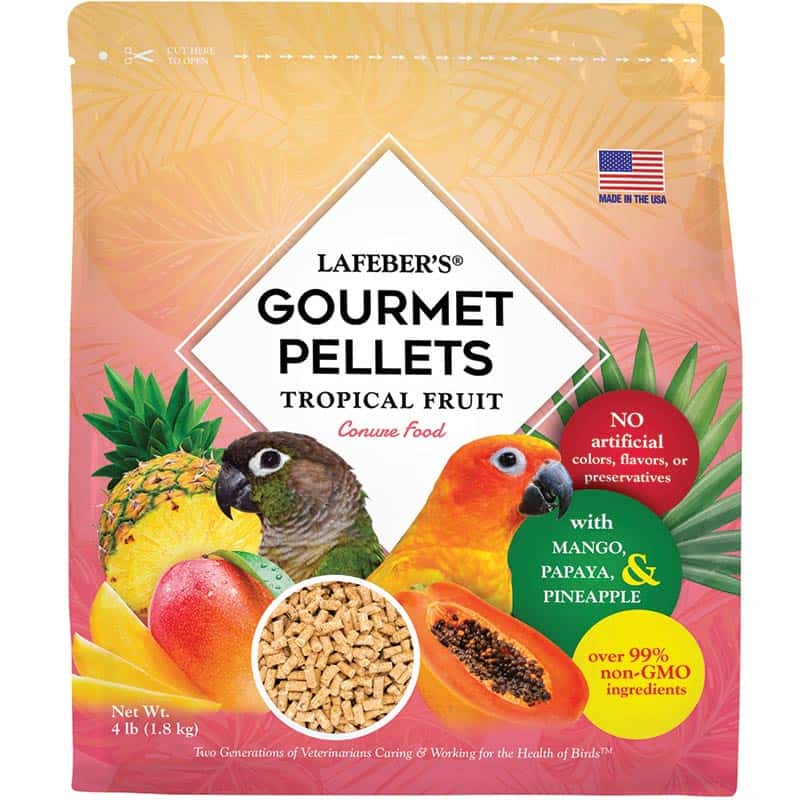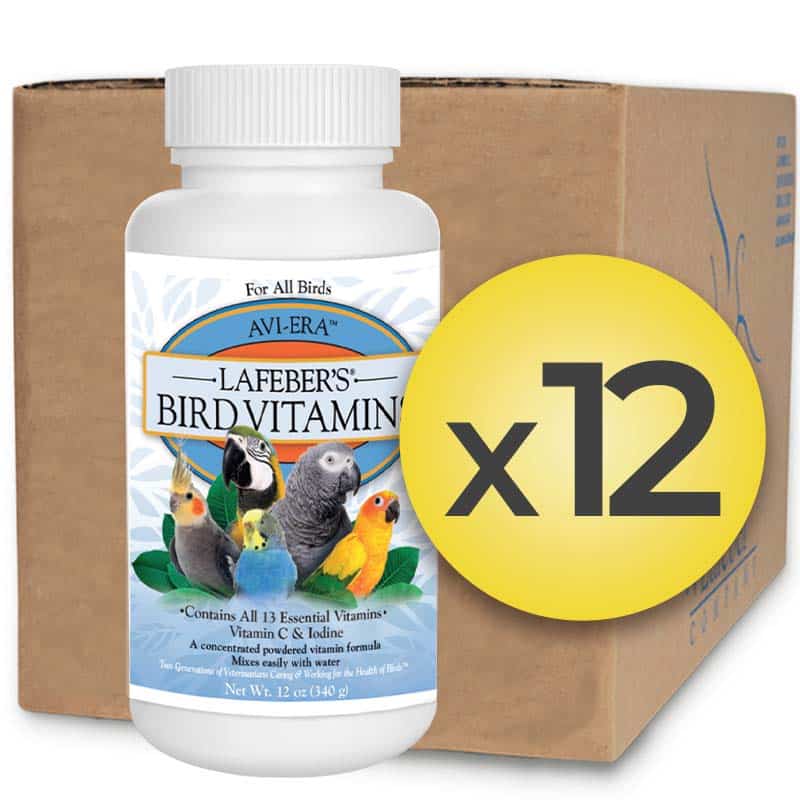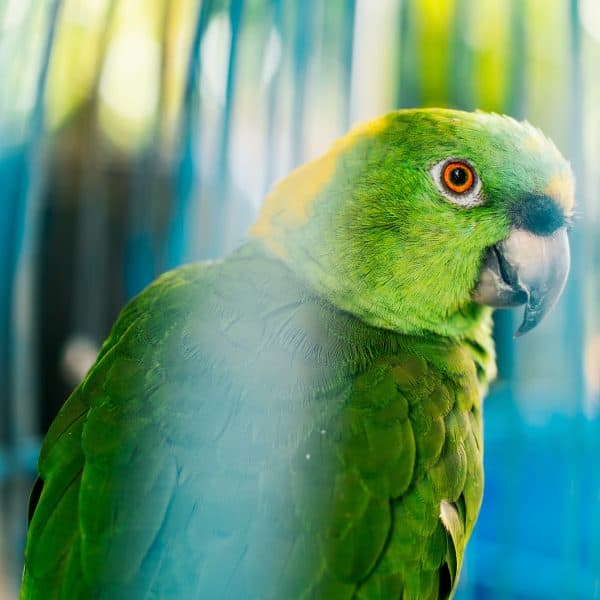-
- -22%
- Winged Breeder Cage Dish 1220 Clear Plastic 16 pc New!
-
$64.00Original price was: $64.00.$50.00Current price is: $50.00. - Add to cart
- 4 in stock
-
- -19%
- Lafeber Conure Tropical Fruit Gourmet Daily Pellets 4 lb New!
-
$54.00Original price was: $54.00.$44.00Current price is: $44.00. - Add to cart
- 6 in stock
-
- -8%
- 12 Each Avi-Era Powdered Bird Vitamins Lafebers 12 oz
-
$599.00Original price was: $599.00.$549.00Current price is: $549.00. - Add to cart
- 6 in stock
Hi Renée
It’s understandable to be confused about lighting as it relates to birds.
I want to offer some background first.
 In full transparency, I learned the fundamentals from Dr. Gregory Harrison the founder of Harrison’s bird food.
Harrisons used to sell “Releaves” a private-label supplement to help prolific egg-laying birds shut down their reproductive system.
One day about 10 years ago we received a call.
The customer had spent the time to read the little packet of instructions that came with the product, something I regrettably never had done.
In full transparency, I learned the fundamentals from Dr. Gregory Harrison the founder of Harrison’s bird food.
Harrisons used to sell “Releaves” a private-label supplement to help prolific egg-laying birds shut down their reproductive system.
One day about 10 years ago we received a call.
The customer had spent the time to read the little packet of instructions that came with the product, something I regrettably never had done.
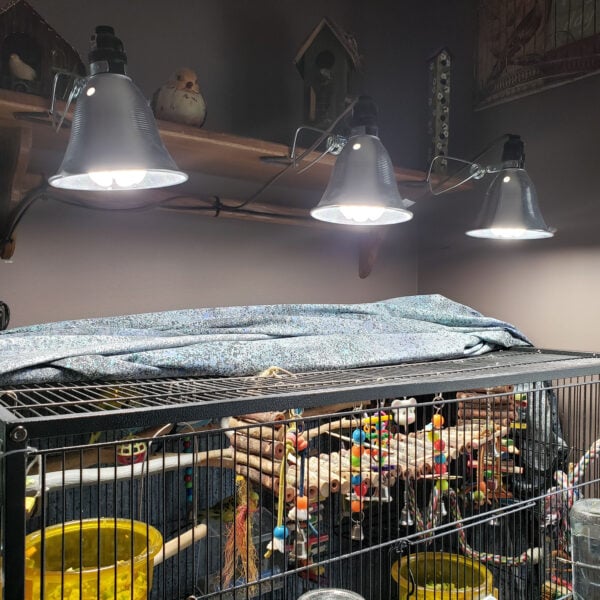 Her question was, “Why does it say must be used in conjunction with having the bird bathe under 72 hours of consistent light?”
My rapid and brilliant response was “hmmmmm, I’ll call you back.”
I called Harrison’s, explained the question I was seeking an answer to, and asked if anyone there would clarify this.
Her question was, “Why does it say must be used in conjunction with having the bird bathe under 72 hours of consistent light?”
My rapid and brilliant response was “hmmmmm, I’ll call you back.”
I called Harrison’s, explained the question I was seeking an answer to, and asked if anyone there would clarify this.
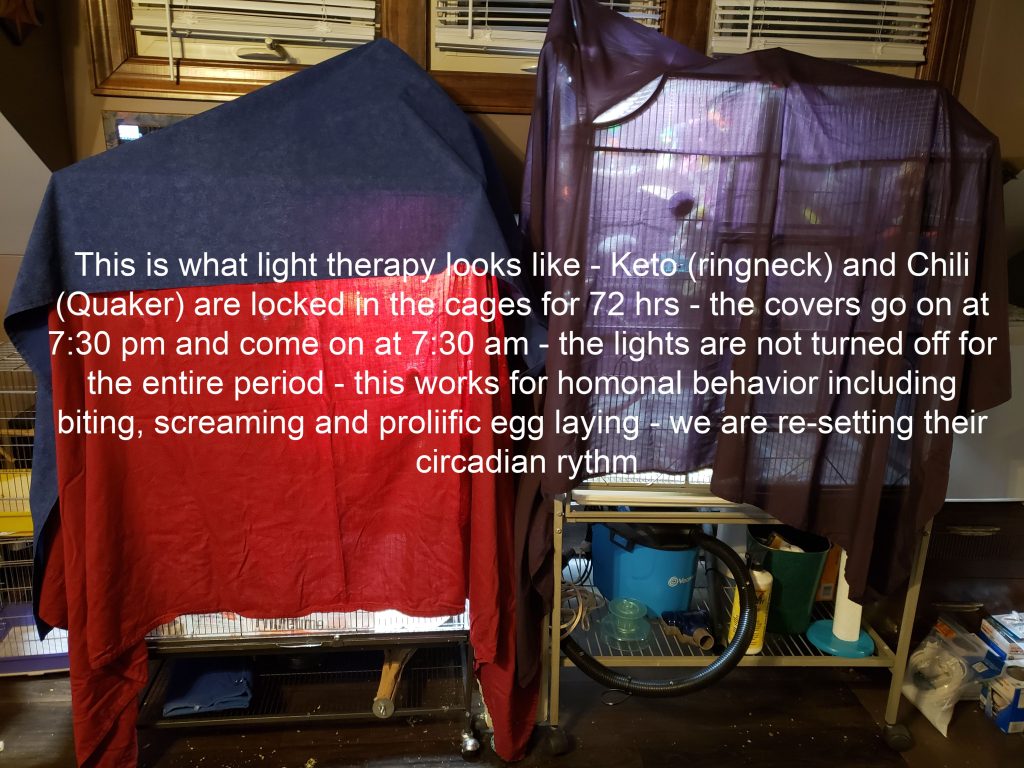
RE: I asked Mark, the owner about his LED’s flickering and this is what he said, “Mostly an old wives’ tale. AC (alternating current) does cause a flicker when it alternates direction, there are no studies that I know of that show this is bad for birds. Those stories came out when people first started using LED’s because people just HATE new things and will make up anything to discredit them. Florescent bulbs flicker WAY more than AC LED’s. However, my LED’s are 12VDC (direct current) so there is absolutely NO flickering.”I get that a lot (the DC current doesn’t flicker, thing), let’s start with: Editor’s note: LED pet bird lights plug into a 120-volt wall socket. The 120-volt current steps down to 12v DC with a transformer inside the LED lighting fixture Endnote “………. When powering an LED light from an AC outlet using an AC/DC power supply, you may run into a problem.
A poorly made power supply can allow some AC voltage to pass into the LED light, creating what is referred to as “ripple.” This AC ripple can cause the LED fixture to pulse or flicker, affecting your shot. Read more:Windy City Parrot has been studying pet bird lighting for more than a decade starting with using light therapy to control our bird’s circadian rhythms. Before I talk about how we got here allow me to elaborate on 2 assumptions I hang my hat on regarding pet bird stress from LED lighting. The dangers of LED lighting lurk in every living being with eyesight called a “fusion flicker rate.” One
Why A Birds Flicker Fusion Rate Is So Important For Fast FlightThat post (above) hyperlinks to a document entitled:
US National Library of Medicine National Institutes of Health publication. aka a study that illustrates fusion flicker rate is stressful for birdsThe article (above) is technical and hard to read unless you’re a scientist so here’s the spoiler alert:
Although this flicker frequency is too high to be perceived by humans, it may induce general stress and impaired welfare in birds with higher FFFs (e.g., Nuboer et al. 1992; Prescott et al. 2003), as has been shown in several studies on starlings (Sturnus vulgaris) (Maddocks et al. 2001; Greenwood et al. 2004; Smith et al. 2005; Evans et al. 2006, 2012). If flicker fusion frequencies in budgerigars supersede those of fluorescent and LED lamps, it may spell welfare problems for many pet birds.Two
LED lights can help birds avoid collisions with planes and buildingsThat’s right, LED’s are in place at airports and tall buildings to discourage birds from approaching. “The experts have found that red and blue LED lights may be used to warn birds to go in another direction.” Red and blue are part of the “full-spectrum” for “white” lighting.
Unless you know the acceptable, if any, LED colors for 750 species of pet birds, the stress your bird is suffering (as in “wanting to avoid”) the LED lighting they are under- is unmeasurable.I’ll throw this in for good measure: Assessing bird avoidance of high-contrast lights using a choice test approach: implications for reducing human-induced avian mortality
We’ve been able to slow or eliminate negative hormonal behavior, excessive egg-laying, and repetitive screaming, using light.More often than not I’ve been called the equivalent of a heretic who promotes this Internet pet bird lighting nonsense.
 In full transparency, I learned the fundamentals from Dr. Gregory Harrison the founder of Harrison’s bird food.
Harrisons used to sell “Releaves” a private-label supplement to help prolific egg-laying birds shut down their reproductive system.
One day about 10 years ago we received a call.
The customer had spent the time to read the little packet of instructions that came with the product, something I regrettably never had done.
In full transparency, I learned the fundamentals from Dr. Gregory Harrison the founder of Harrison’s bird food.
Harrisons used to sell “Releaves” a private-label supplement to help prolific egg-laying birds shut down their reproductive system.
One day about 10 years ago we received a call.
The customer had spent the time to read the little packet of instructions that came with the product, something I regrettably never had done.
 Her question was, “Why does it say must be used in conjunction with having the bird bathe under 72 hours of consistent light?”
My rapid and brilliant response was “hmmmmm, I’ll call you back.”
I called Harrison’s, explained the question I was seeking an answer to, and asked if anyone there would clarify this.
Her question was, “Why does it say must be used in conjunction with having the bird bathe under 72 hours of consistent light?”
My rapid and brilliant response was “hmmmmm, I’ll call you back.”
I called Harrison’s, explained the question I was seeking an answer to, and asked if anyone there would clarify this.
Just like that, I was talking to Dr. Greg Harrison. We spoke for 30 or 40 minutes and after hanging up I felt very empowered.

Up until that point, the only thing that veterinarians were using for prolific egg layers costing between $40 and $80 per injection was Lupron.
Soon after, our albino cockatiel started laying eggs, prolifically. We tried dummy eggs and several hundred dollars worth of Lupron.Seeing Popcorn so physically distressed (for a variety of reasons) we decided to try 72 hours of light therapy.She stopped laying eggs. I don’t want to go down the rabbit hole of that whole experience but you can read about it here:
I Want My Freakin Bird Back but She’s Held Hostage by Her EggsMy point is once we realized what we possessed with this powerful new tool which is highly effective and easily affordable – we knew we could make a positive change for pet birds everywhere. We have countless wins and are proud of our efforts
Feel free to reach out with further questions by email or not-so-smart phone. Stay safe Best MitchRIt would be helpful to send me a picture of your cage so I can make recommendations for lighting style and installation.
Author Profile
Latest entries
 Feeding Exotic BirdsDecember 29, 2025How to Switch or Convert Your Bird From Seeds to Pellets: Real-Life Case Studies and Practical Guidance
Feeding Exotic BirdsDecember 29, 2025How to Switch or Convert Your Bird From Seeds to Pellets: Real-Life Case Studies and Practical Guidance Feeding Exotic BirdsDecember 16, 2025A Practical, Budget-Smart Guide to Feeding Birds Well
Feeding Exotic BirdsDecember 16, 2025A Practical, Budget-Smart Guide to Feeding Birds Well Bird EnviornmentsDecember 7, 2025Understanding Budgie Cage Bar Orientation: Myths, Realities & Practical Solutions for Vertical-Bar Bird Cages
Bird EnviornmentsDecember 7, 2025Understanding Budgie Cage Bar Orientation: Myths, Realities & Practical Solutions for Vertical-Bar Bird Cages Feeding Exotic BirdsDecember 5, 2025How Dr. T.J. Lafeber Rewrote the Future of Pet Bird Nutrition
Feeding Exotic BirdsDecember 5, 2025How Dr. T.J. Lafeber Rewrote the Future of Pet Bird Nutrition


